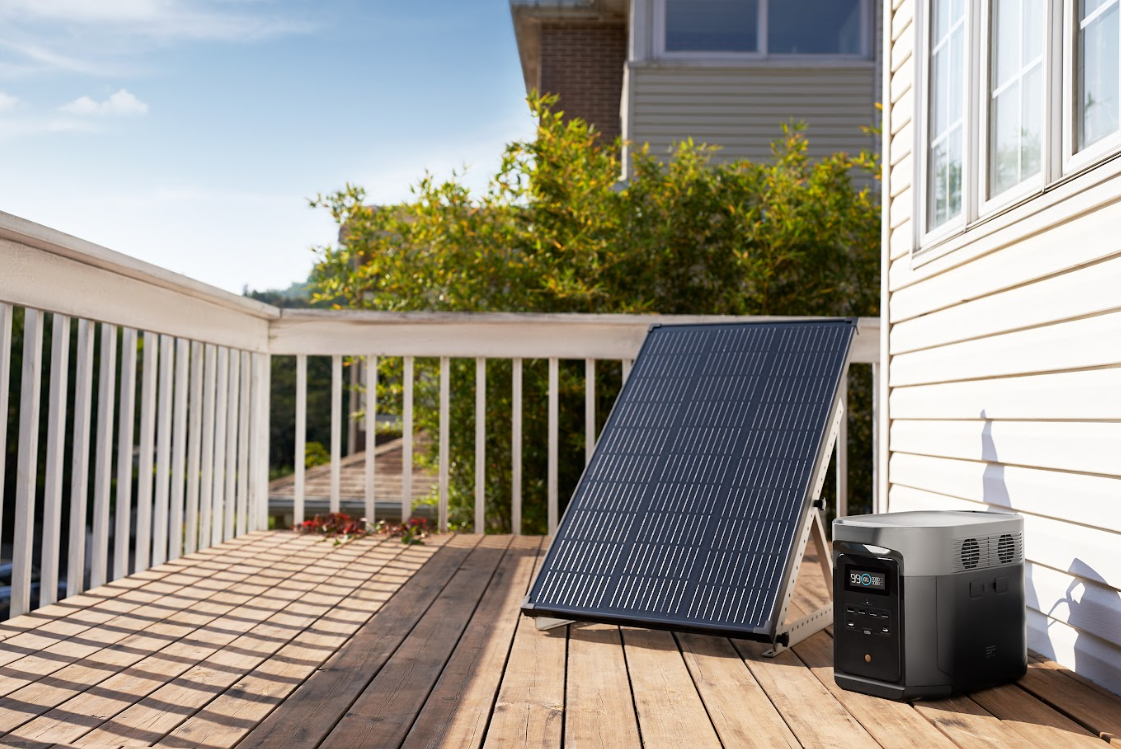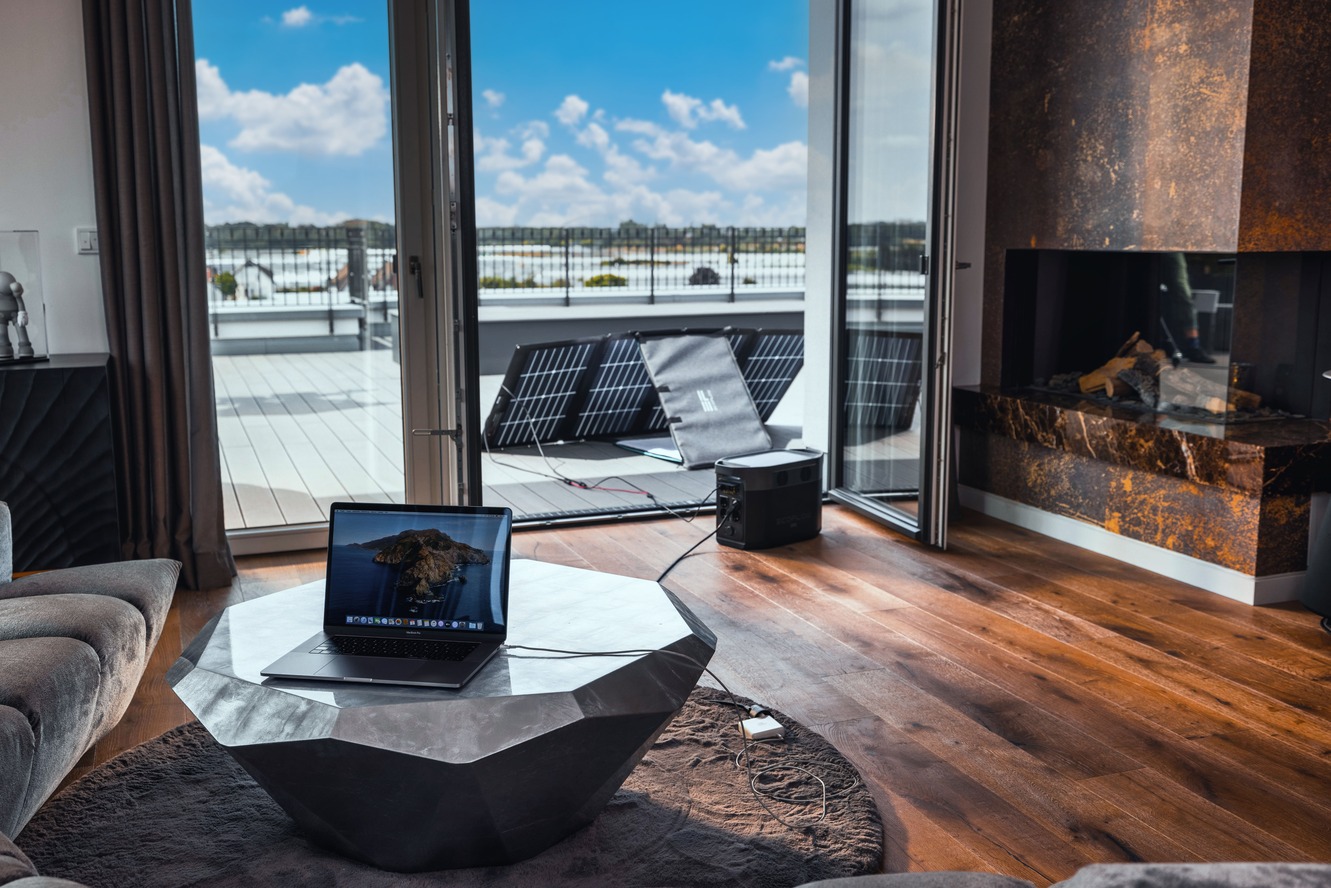1kW Solar System: All You Need to Know
- Understand a 1kW Solar System
- How Much Power Can a 1kW Solar System Generate?
- How Many Batteries Are Good for a 1kW Solar System?
- How Many Solar Panels Are Needed for a 1kW Solar System?
- What Can a 1kW Solar System Run?
- How Much Does it Cost to Install a 1kW Solar System?
- Is a 1kW Solar System Portable?
- Is a 1kW Solar System Worth It?
- Is it Easy to Expand a 1kW Solar System, and How Much Does it Cost?
- Final Thoughts: Getting Started with 1kW Solar
- FAQs about 1kW Solar Systems
More and more people want to use solar power today. Solar energy is clean, renewable, and free after setup. A 1kW solar system is a simple and easy way to start. Many people ask how much it costs and what it can run. This guide will show you everything you need to know about a 1kW solar system.
Understand a 1kW Solar System
A 1kW solar system is a solar power setup that can produce 1000 watts of power. It works when the sun’s energy hits the solar panels. The system has a few important parts:
- Solar panels that turn sunlight into electricity.
- Inverter that changes the electricity into a form usable at home.
- A charge controller that manages how electricity flows into batteries and keeps them safe.
- Batteries that store energy for later use, especially when the sun is down.
How Much Power Can a 1kW Solar System Generate?
In most areas:
- A 1kW solar system can produce around 4 to 5 kWh a day.
- In a month, this adds up to about 120 to 150 kWh.
- Over a year, it may generate about 1,400 to 1,800 kWh.
How Many Batteries Are Good for a 1kW Solar System?
The number of batteries depends on how much energy you want to store and use.
For example:
- A 1kW system can produce around 4 to 5 kilowatt-hours (kWh) of power a day.
- To store this amount, you need batteries that can hold 4 to 5 kWh.
- Many home batteries hold around 2 kWh each.
This means you would need 2 to 3 batteries for full-day use. You can add more batteries if you want to store extra energy for cloudy days or emergencies.


How Many Solar Panels Are Needed for a 1kW Solar System?
A typical solar panel gives about 300 watts. To make 1000 watts, you need around 3 to 4 panels. Things might be different in areas with less sunlight. You might need 5 to 6 solar panels.
The type and efficiency of panels also matter. Because A good quality panel will give more power from the same amount of sunlight.
What Can a 1kW Solar System Run?
A 1kW system can power small items. But not everything at once. Here’s a list of common things it can handle:
- LED or CFL lights
- Laptop and computer
- TV under 100 watts
- Wi-Fi router
- Small fridge
- Phone chargers
- Fans
- Coffee maker or blender
Running all these devices at the same time may use up the system’s power quickly. It works best for light daily use.
How Much Does it Cost to Install a 1kW Solar System?
The total price depends on the parts you choose and the cost of installation.
Here’s a rough idea of costs in the U.S.:
- Solar panels: $500 to $1,000
- Inverter: $200 to $500
- Charge controller: $100 to $300
- Batteries (optional): $1,000 to $2,000
- Installation cost: $1,000 to $2,000
Adding all parts together, a complete 1kW solar system may cost $2,800 to $5,800. Without batteries, the price drops to around $1,800 to $3,000. Costs can vary based on the brand and installer.


Is a 1kW Solar System Portable?
A full 1kW solar system is usually fixed in one place. It is often installed on a roof or in a yard. The system includes heavy panels, an inverter, batteries, and wiring. These parts are not easy to move around.
However, some companies offer portable solar kits. These kits may include foldable panels and a small inverter. They are made for camping or outdoor use. While they are easy to move, they may not give a full 1kW of power.
For real portability, a smaller solar setup with fewer panels and no batteries is easier to carry. But a full 1kW system is better for a permanent setup.
If you want portable solar power with real strength, the EcoFlow DELTA 3 Series Solar Generator (PV220W) is the best bet. Here’s a quick look at its features:
Feature | Details |
Solar Input | NextGen 220W bifacial portable solar panel, up to 28% extra sunlight capture |
Power Output | 1000W continuous, up to 2200W surge, powers most home appliances |
Battery Capacity | Expandable from 1kWh to 5kWh with extra batteries |
Battery Type | Long-life LFP battery, 10 years daily use, 3000+ charge cycles |
Charging Speed | High solar efficiency with 99% MPPT; fast wall charging in 1.3 hours |
Portability | Lightweight, foldable solar panel with adjustable stand (30°–60°) |
Noise Level | Silent operation, no fumes or smell |
Smart Control | Real-time power monitoring via display and EcoFlow app |
Best For | Home backup, RV trips, camping, small workshops, emergency power |
EcoFlow DELTA 3 Series Solar Generator (PV220W) is perfect for people who want strong, clean, and portable solar power.
Is a 1kW Solar System Worth It?
A 1kW solar system can be a smart choice for many homeowners, but it depends on your situation.
It can be worth it if:
- You want to reduce your electricity bill. A 1kW system will not cover all your power needs, but it can lower your bill by running small items like lights, chargers, and fans. Over time, the savings can add up.
- You have enough space for the panels and equipment. A small system still needs a few solar panels, plus room for an inverter and possibly batteries. If you have a roof or yard with good sunlight, this system can work well.
- You live in a sunny area. Sunlight is the fuel for solar systems. In areas with many clear, sunny days, a 1kW system can give you more energy, which makes it more cost-effective.
- You only need to run small devices and lights. If you live alone, have a small family, or just want to power essential items, a 1kW system may be enough. It can keep your basic needs covered during power cuts or save money on everyday use.
It may not be worth it if:
- Your home has high energy use. If you run big appliances like air conditioners, heaters, or washing machines often, a 1kW system will not provide enough power. You might still rely heavily on grid power.
- You need to power large appliances. A 1kW system is not strong enough for ovens, dryers, or big fridges. If these are your main energy needs, a larger system is better.
- You live in a cloudy area. Without steady sunlight, the system may not produce enough energy. This means you may not get the savings you expect.
Many homeowners start small with a 1kW system and expand later. This lets them learn how solar works, test its value, and grow the system over time if needed.
Is it Easy to Expand a 1kW Solar System, and How Much Does it Cost?
Expanding a solar system can be simple if planned early. To expand a 1kW system, you may need:
- More solar panels: $150 to $300 each
- Larger inverter: $200 to $800
- Extra batteries: $500 to $1,000 each
- Additional wiring and parts
Many homeowners start with 1 kW and add panels and batteries later. Expanding to 2kW may cost an extra $1,500 to $3,000. Expansion depends on your roof space, available budget, and electricity needs.
Final Thoughts: Getting Started with 1kW Solar
A 1kW solar system offers a simple way to use solar power. It can lower electricity bills, run small devices, and is a good start for solar users. The price depends on the system parts and whether you add batteries. Many people start small and add more over time.
FAQs about 1kW Solar Systems
Q1: Can a 1kW solar system power a whole house?
No, a 1kW solar system is too small to run a whole house. It can supply power for basic items like lights, a TV, a fan, or a laptop for a few hours, but it cannot handle high-energy appliances like a refrigerator, oven, or air conditioner. A full house needs a larger system, typically 5kW or more, depending on your location and energy use.
Q2: How long do solar panels for a 1 kW system last?
Most solar panels can last 25 to 30 years, sometimes longer, with proper maintenance. Over time, panels may produce slightly less electricity, with output typically dropping by about 0.5% per year. Good cleaning habits and avoiding physical damage can extend their lifespan. Using panels with a high-quality warranty and proven track record adds reliability, and ensuring panels stay clear of debris and shading can help them stay efficient for decades.
Q3: Does a 1kW solar system work on cloudy days?
Yes, a 1kW solar system continues working on cloudy days, though at a lower output. Cloud cover reduces the amount of sunlight that reaches the panels, so the system may produce just 10% to 30% of its full capacity, depending on cloud thickness. Thin clouds allow more light, while thick clouds block much of it. Some advanced panels with better low-light performance can produce more in cloudy conditions, but the power will always be less than on a sunny day.
Q4: Can I install a 1kW solar system by myself?
It is possible if you have basic electrical knowledge. However, most people hire a professional to make sure the system is safe and works well. A good installer can set up the panels, inverter, and batteries correctly. This saves time and reduces risk.
Q5: How often should I clean my solar panels?
It depends on where you live. In dusty areas, you may clean them every few months. In places with rain, natural cleaning may be enough. Panels should stay clear of dirt, leaves, and bird droppings to work their best. Check them every few months to see if they need cleaning.